
- Home
- India
- World
- Premium
- THE FEDERAL SPECIAL
- Analysis
- States
- Perspective
- Videos
- Sports
- Education
- Entertainment
- Elections
- Features
- Health
- Business
- Series
- In memoriam: Sheikh Mujibur Rahman
- Bishnoi's Men
- NEET TANGLE
- Economy Series
- Earth Day
- Kashmir’s Frozen Turbulence
- India@75
- The legend of Ramjanmabhoomi
- Liberalisation@30
- How to tame a dragon
- Celebrating biodiversity
- Farm Matters
- 50 days of solitude
- Bringing Migrants Home
- Budget 2020
- Jharkhand Votes
- The Federal Investigates
- The Federal Impact
- Vanishing Sand
- Gandhi @ 150
- Andhra Today
- Field report
- Operation Gulmarg
- Pandemic @1 Mn in India
- The Federal Year-End
- The Zero Year
- Science
- Brand studio
- Newsletter
- Elections 2024
- Events
Why the gutted Gulberg Society has not healed from the 2002 Gujarat riots

On February 8, Saira Sandhi and Rupa Mody stood in front of what was once their homes in the Gulberg Society, which was until about two decades back an upscale gated Muslim locality, in Ahmedabad.For Saira and Rupa, standing before their houses is an annual ritual since 2002. It is at this annual meeting held on February 28 every year that victims of 2002 Gujarat riots meet and remember...
On February 8, Saira Sandhi and Rupa Mody stood in front of what was once their homes in the Gulberg Society, which was until about two decades back an upscale gated Muslim locality, in Ahmedabad.
For Saira and Rupa, standing before their houses is an annual ritual since 2002. It is at this annual meeting held on February 28 every year that victims of 2002 Gujarat riots meet and remember their lost ones at the Gulberg Society.
Last Thursday, the two women pointed towards their gutted, deserted houses that were once their family homes as they embraced each other and broke down. Usually, the families meet on February 28, the day the riots claimed the lives of 69 people of the society and their hoouses were set afire. But Saira, a Muslim and her neighbour Rupa, the only Parsi resident of the society, visited early this year.
Both the women are eyewitnesses and victims of the post-Godhra riots during which Saira lost four of her family members, while Rupa’s 14-year-old son Azhar went missing. He remains untraceable till date.
“Azhar would turn have turned 35 this year on February 8th this year. Every year I come and pray for my son on February 28 but this year I visited early with my family for a prayer gathering to mark Azhar’s 35th birthday,” Rupa Mody tells The Federal trying to control her tears in vain.
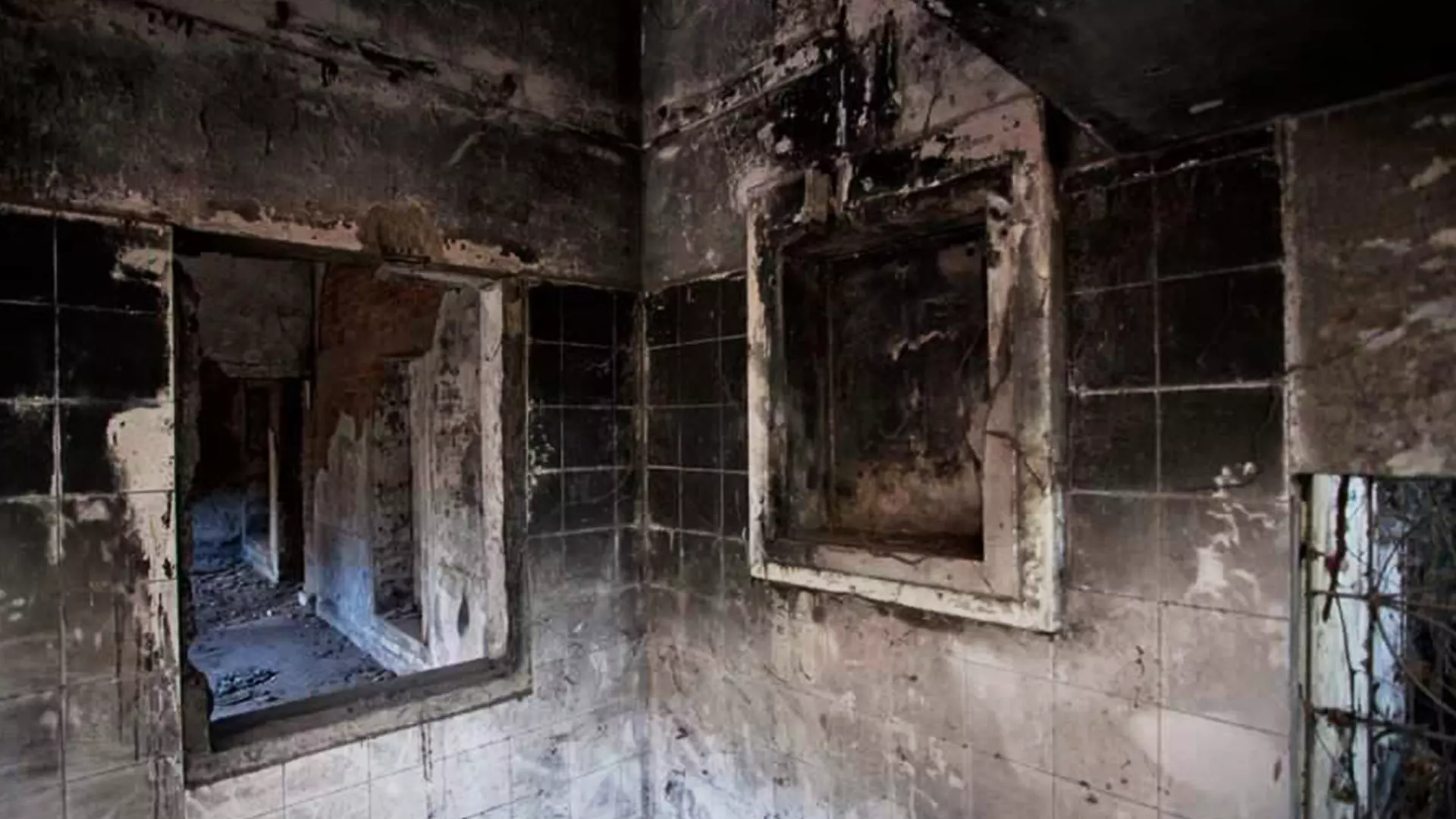
Gutted remains of what used be Rupa Moody's house until February 2002.
“My children could never live here. They will live in constant fear if they decide to shift to this society,” says Saira, who had come to give company to Rupa. With little left, the victim families have tried to have each other’s backs since their world was burnt down.
Saira shifted to the Shahibaug area of old Ahmedabad post the riots with her family while Rupa to Gomatinagar but their friendship has survived.
The families have struggled emotionally and financially ever since the riots.
“I have been trying to sell my house for a decade now. We had a three-bedroom flat in the society. As per current market rates, the property should have been worth over Rs 1 crore. However, given the condition of our houses that has only worsened over the years, we have been trying to sell it for as low as half the price,” Saira says.
“In 20 years, however, we managed to get only one offer. The offer came in 2019 from a Hindu real estate agent who made a bid of Rs 10 lakh. We couldn’t bring ourselves to sell the property for such a meagre price,” adds Saira.
The once thriving society comprised 29 bungalows and 10 apartment buildings, housing mostly Muslim upper-middle-class business families.
The residents visit their houses, now almost in ruins, to see what remains of it.
Nargis Bano, now 52, lost her father and eight other members of the family in the riots.
“We have been wanting to sell our house. Leaving it like this forever won’t help us,” says Bano as she lights a candle before a framed photo of her father that she brings once a year to their gutted house.
Salim Sandhi’s, another resident, used to once live in Bungalow Number 6 in the gated society with his family. The joint family of 35 was on the verge of selling their house just before riots hit. The two-bedroom bungalow did not have enough space for Salim and his brother’s growing family.
But before they could finalise the deal, the riots hit the city and their house was burnt down. Bungalow Number 6 now stands deserted with bushes growing from the walls and ceiling, charred beyond recognition with nothing to distinguish it from the other burnt houses of Gulberg Society.
Except for one survivor — the family of Aslam Mansoori, every other Gulberg family chose to abandon the houses where they lost their loved ones. Aslam lost 19 members of his family — the highest death toll in a single family in the locality. He refuses to speak about the day or why he chose to return to the society.
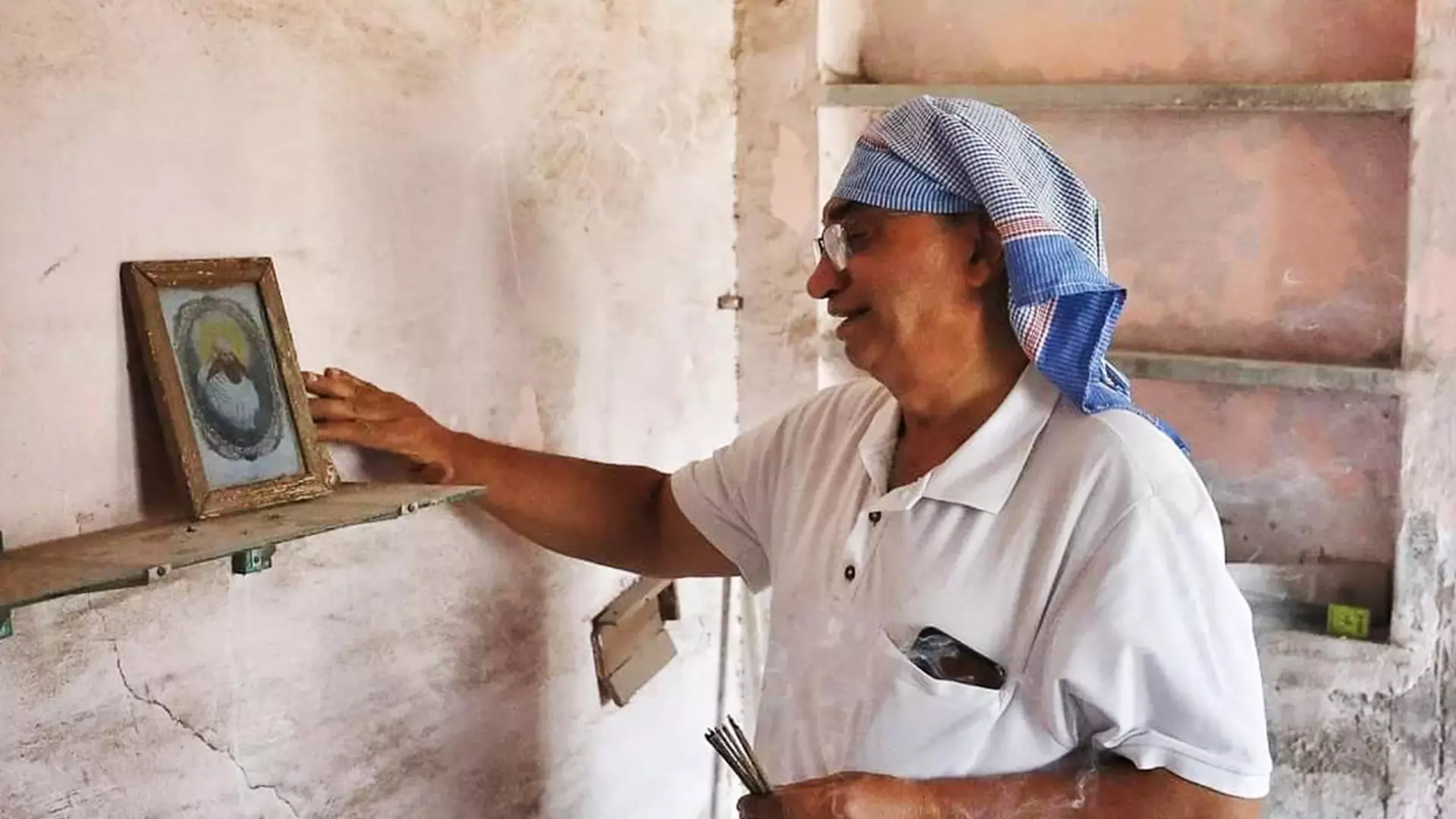
Dara Mody whose 14-year-old son went missing never to be found.
“Mansoori used to be one of the witnesses in the legal case concerning the Gulberg Society killings during 2002. However, in 2015 he turned hostile and refused to identify the accused in the sessions court. After that his family shifted to the society,” shares Imtiaz, one of the survivors of Gulberg Society massacre.
For security reasons, most of the residents live in rented houses in the Muslim-dominated Rakhial, Juhapura, and Sarkhej areas, paying for rented apartments even though they still own property in Ahmedabad city.
“I live in Gomtipur, Ahmedabad. I can barely afford my current rent of Rs 7,000 per month. If we, the society members, decide to return, it will first take several lakhs of rupees for repair and renovation. We just don’t have that kind of money,” says Imtiyaz.
“Besides, the burnt houses of the society with the inside walls of the homes still covered with soot are reminders of the terrible violence. After 20 years, miscreants have even removed the doors and window frames and taken them away. Our only option remains to sell the house but we haven’t yet got a reasonable deal in all these years. Some Hindu real estate dealers have offered to buy but the price is less than half the current market price,” he adds.
For the past several years, majority of residents have been making efforts to negotiate with builders to sell the society. Over the years, the houses have turned into a dilapidated condition and the residents are now completely uncertain about the fate of their abandoned homes.
Noticeably, in 2009, human rights activist Teesta Setalvad had proposed to convert the Gulberg Society into a museum for communal harmony. However, the project fell through owing to the opposition from a section of victim families. A few of the residents later had filed a legal case against Teesta and her husband accusing them of money laundering and claiming that the Rs 45 lakh collected for the said museum was used for her personal work. The case is still under trial in a local court in Ahmedabad.
To add to the trouble, the Gujarat government imposed the Disturbed Area Act on Gulbarg Society in 2012 making it mandatory for the residents to seek the collector’s permission for selling their property.
What is Disturbed Area Act
The Gujarat Prohibition of Transfer of Immovable Property and Provisions of Tenants from Eviction from Premises in Disturbed Areas Act, commonly known as the Disturbed Areas Act, was enacted in the year 1986. It was meant to be temporary in order to prevent the distress sale of properties following the riots in 1985-86. It was replaced with a new act in 1991, which empowered the Gujarat government to declare a communally sensitive area as ‘disturbed’.
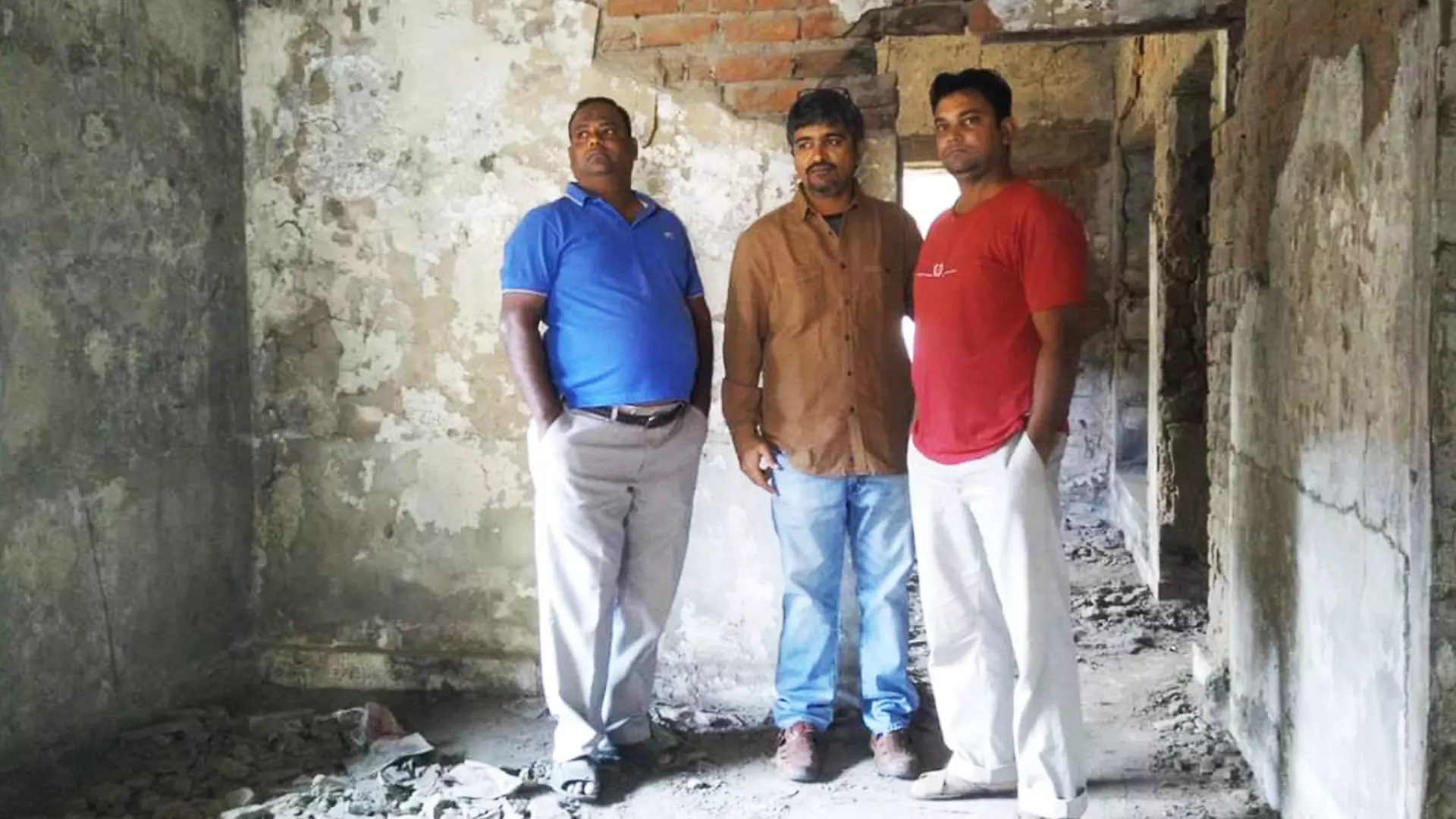
Imtiyaz (left) looking at the remains of his house.
Under the Act, a district collector can notify a particular area of a city as a ‘disturbed area’. Then the transfer of immovable property in the disturbed areas can take place only after it gets the collector’s nod. A person can be imprisoned and fined for violating the Act.
In July 2019, the Gujarat government moved to amend the Act. The amendment, which received Presidential Assent on October 13, 2020, enhanced the scope of the term ‘transfer’ to include transfer of right, title or interest in or over properties in disturbed areas by means of sale, gift, exchange and lease. Under the amended Act, no property in disturbed areas can be registered without prior sanction from the collector.
Such legalities add to doubts in the mind of buyers impacting property prices.
A haunting memory and safety concerns
Thirty-five Muslims including former Congress MP Ehsan Jafri were burnt alive on February 28, 2002 at the Gulberg Society and 31 others went missing. They were later presumed dead. The total casualty toll at Gulberg Society rose to 69 between February 28 and March 1, 2002.
Nearly two decades later, fear in Muslim areas is still palpable.
“In the Naroda and Meghaninagar areas of the city, the Muslim families still leave their homes before the annual Navratri and Rath Yatra festivals. Whenever a large Hindu crowd gathers around our area, we leave with our valuables. We go away and live with our relatives, we are still scared,” says 20-year-old college student Asif Mansuri, another survivor who now lives on rent with his family.
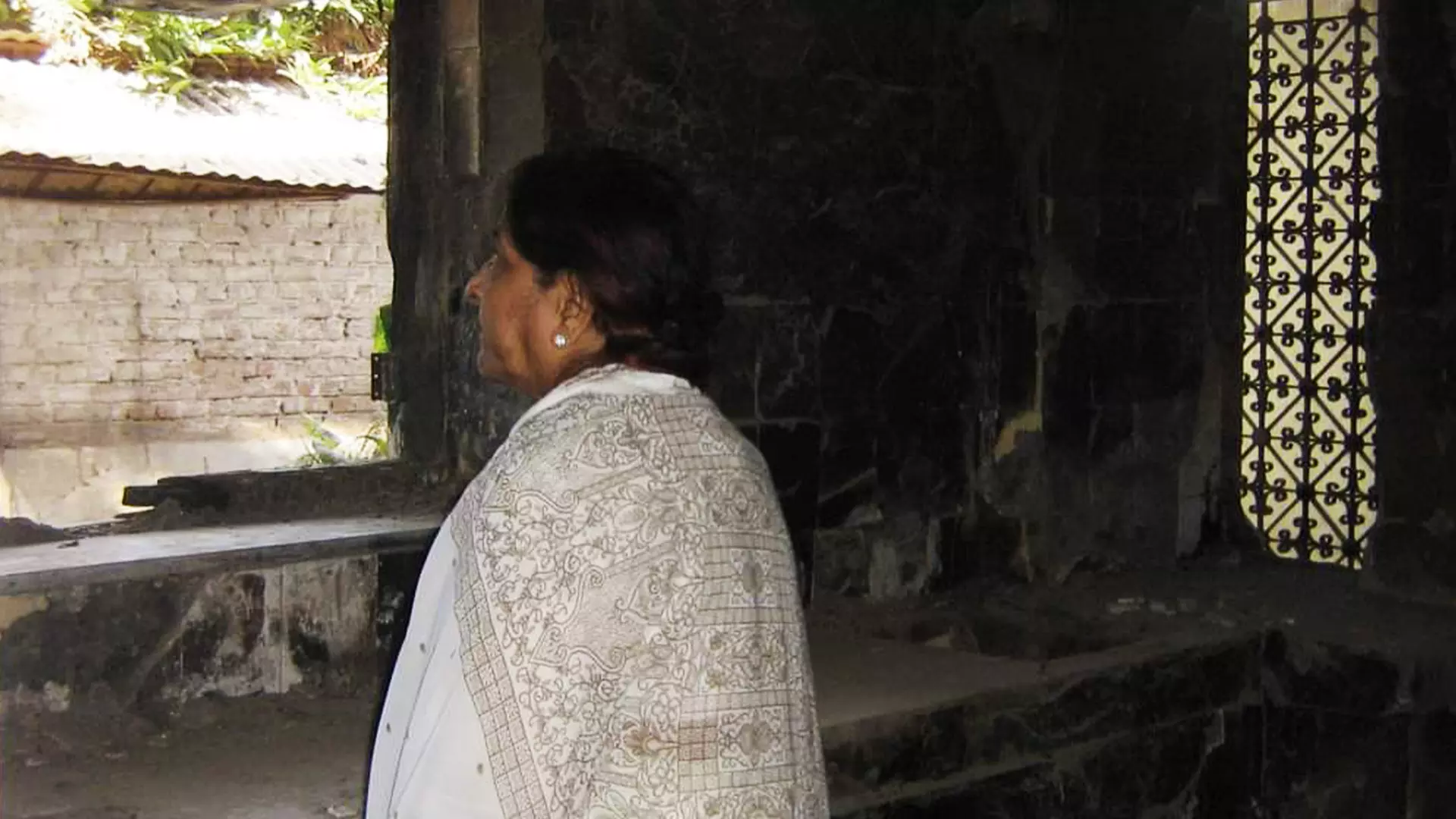
Zakia Jafri, widow of former Congress MP Ehsan Jafri, at her burnt down house.
Mansuri was six at the time of the riots. Masnsuri’s family owned a printing press in the Naroda area of Ahmedabad and like most residents of the Gulberg Society, they were financially well off. However, their lives and fortunes turned upside down overnight. His two elder brothers had to drop out of school to earn for the family.
“I remember men with swords setting our houses on fire. We fled to return after two years of living in relief camps and relatives’ homes. It took us years to rebuild our lives. If not for the riots, they too would have studied and had good jobs. Instead, they work as labourers at a construction site,” Mansuri says.
“My father could never return back to our home or to the printing press after 2002. We were then living out of one of the relief camps on the outskirts of Ahmedabad. For two years, we lived there without any income, depending on the donations. It was during that time, my father sold the printing press to a Hindu trader at throw-away prices. Later, my father and brothers managed to get work as daily-wage laborers at a construction site. My family worked hard to put me through school,” he shares.
Noticeably, most of the residents of the Gulberg Society were traders and financially well off. The Muslim families of the area used to own printing press and godowns in the neighboring industrial hub. But post 2002, as the families fled, their businesses were mostly taken over by Hindu traders.
Imtiyaz Khan, then 19 years old, was the first person of the society to be warned about a mob gathering around Gulberg Society by a Hindu friend from a neighboring society. He had not joined his family business and used to work as a contractual electrician with real estate developers.
That day, he had gone out to complete the wiring work at his friend’s house.
“We ran to Jafri uncle’s house and urged him to do something for our safety. But the mob reached the gate of Jafri uncle’s bungalow and began banging. Jafri uncle pleaded to take him instead but spare the children and women as he went down the stairs to confront the crowd. The mob caught him by his throat and dragged him to the backyard of his bungalow. Within the next few hours, Jafri uncle, my mother, brother, grandma, grandfather, aunt, sister-in-law, two nieces and a nephew, were all burnt alive,” Imtiyaz says shuddering as he recalls the nightmare 21 years later.
Imtiyaz has managed to open a small printing and stationery shop with money saved over the years. His family used to own two printing press and a godown that they would rent out.
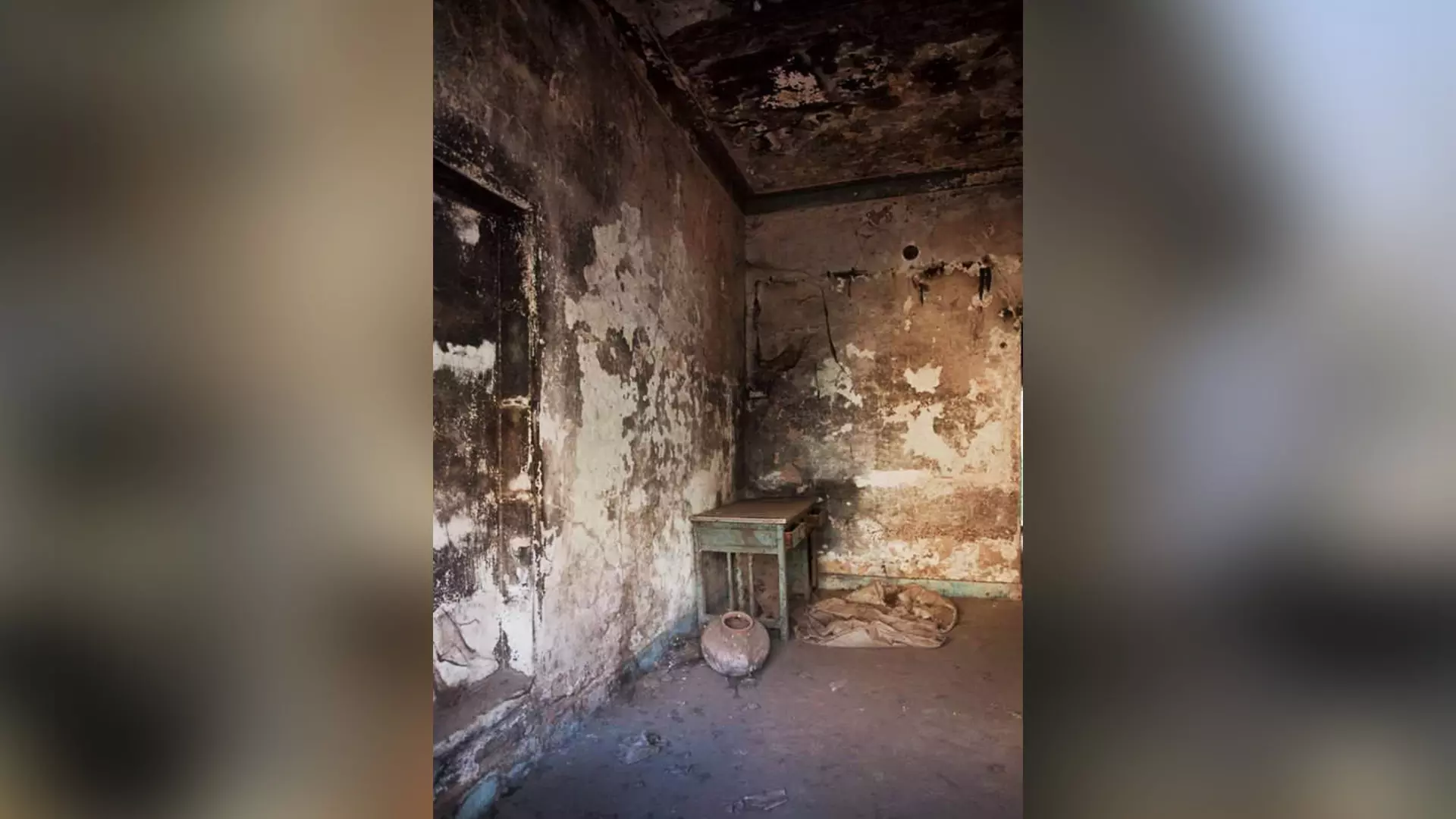
The charred room that used to be Saira Sandhi's bedroom.
“One day, we suddenly lost everything – family, business and home. After we fled Gulberg Society, we could never reopen our godown or the printing press. We were too scared to go back to the area,” he says.
February 2024 marks 21 years of the ill-fated time when arson and killings went on for two days after the death of 59 kar sevaks who were returning from Ayodhya to Gujarat in the Sabarmati Express.
On the ill-fated day, some residents of Gulberg Society had just returned home from a Jagjit Singh ghazal concert that had drawn a huge crowd across religions. There were others who were home and had started to sit for their evening prayers when a mob attacked the society, killing indiscriminately, raping women and burning homes down.
Many who lost families and property in the violence that ensued have not been able to piece together their lives yet.
